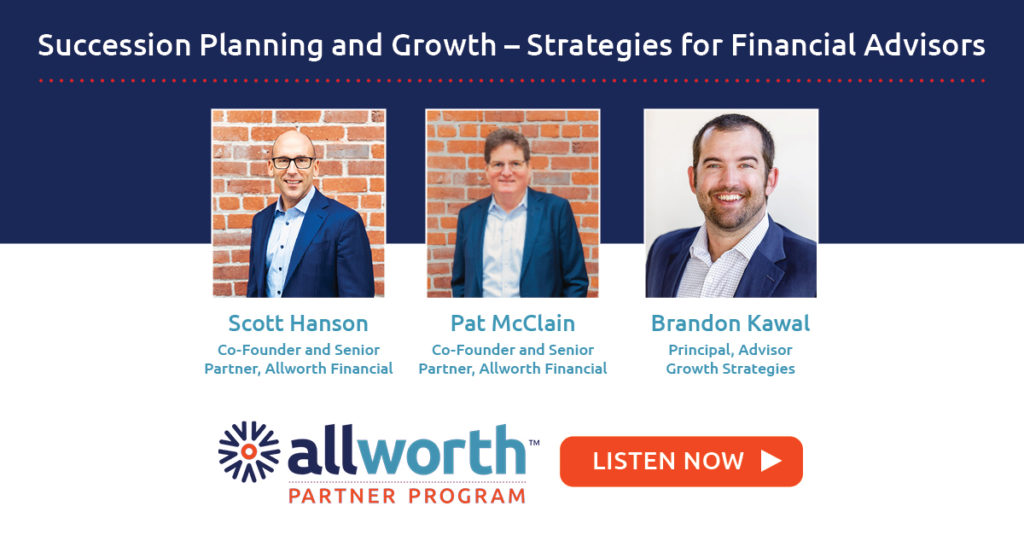Succession Planning to Enable Growth

Newsflash! The average age of financial advisors is roughly 54, while the estimated average age of advisory firm principals is now right around 63.
That likely makes the advisory sector one of oldest of any profession.
While there’s certainly nothing wrong with any of that, the advisory sector is a deeply complex and personal business that’s entrusted with the responsibility of guiding the financial well-beings of clients.
It stands to reason, that if the sector is comprised of an older demographic, than both its principals and clients would all likely rest easier with succession plans in place to seamlessly take care of those clients in the event of a forced or sudden retirement.
Statistics show that’s not the case, however.
In its groundbreaking white paper: “Succession Planning Beyond Ownership Transition: It’s a Smart Human Capital Strategy,” TD Ameritrade1 uncovered some interesting facts. First, almost 66% of advisory firm principals who were interviewed said they had at least some level of succession plan in place.
That number isn’t terrible.
Yet, when pushed further, over half of those surveyed report their succession plan is: “merely adequate.”
Simply, while the average age of an advisor is (compared to other sectors) high, less than half of all principals have a viable, client-focused succession plan in place.
So, why don’t more professional advisors have one?
The #1 concern reported by principals is that their clients won’t be well taken care of.
While this would seem understandable, a closer look at the numbers reveals that, perhaps advisors aren’t looking at the inevitable outcome(s) clearly. That’s because adequately taking care of the needs of clients is nearly impossible if there’s no succession plan.
Yet, when it comes to the well-being and future care of clients, there are some positive trends.
For instance, based on a survey by DeVoe and Company2, just two years ago, only 1/3 of all principals said they’d consider selling to private equity.
At the time, private equity was relatively new to the advisory space, and perhaps seen as not entirely in-tune with the specifics of what it takes to meet the needs of clients and their families.
Shift ahead two years, and 50% of firm principals say they’d consider selling to private equity.
Why the sudden, large migration in perception?
The fact is that the advisory sector is undergoing a considerable consolidation. Firm valuations are moving ever higher (but for how long?), in part because private equity has not merely gained a foothold, it has established itself as a key player and the driving force behind many of the most recent and well-recognized deals.
On this episode of State of the Industry podcast, host Scott Hanson, Co-CEO and Co-Founder of Barron’s Top 50 Investment Advisory Firm Allworth Financial, welcomes Brandon Kawal of Advisor Growth Strategies to the program. Brandon and Scott discuss research that shows where the growth opportunities are in the advisory sector, and then evaluate the increase in options for principals seeking everything from business partnerships to succession plans to outright sales.
Scott then interviews his long-time business partner, Pat McClain, who 2.5 years ago transitioned into the position of identifying viable partnerships. Pat discusses some of Allworth’s most recent deals, and details what principals tell him they are seeking, and why. (It’s not always what you’d expect.)
Find out more about private equity’s impact on mergers and acquisitions in our space, and what’s next for the advisory sector on State of the Industry Podcast.

Report Sources:
